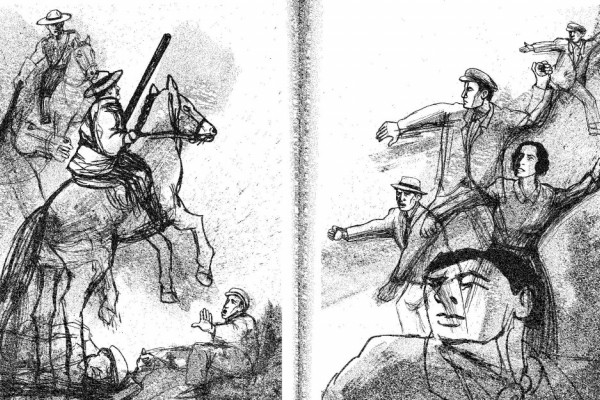What we need is a working-class politics

Photo by Daniel Perianu
Reflecting on the state of our movement, we should be asking: Is the labour movement better positioned today to influence and affect meaningful change than under Harper? Are the prospects for workers in this country better than they were over the past 10 years?
There is no doubt that, after a decade of Harper, unions have much to celebrate with his defeat just over a year ago. The Liberal government has reversed the most offensive of Harper’s anti-labour legislation and, in rhetoric at least, seems to have a more positive relationship with the labour movement.
Despite its “sunny ways,” however, the government is committed to a neoliberal agenda diametrically opposed to the interests of workers and their organizations. The difference between the Trudeau and Harper governments is not as substantive as we are led to believe. Whereas Harper wanted to bust unions, Trudeau’s more populist style is to co-opt them. The end result may be even worse.
Personal access to the prime minister, cabinet ministers and their staff is a central feature of this co-optation process. Unfortunately, many confuse this for real power and in so doing end up magnifying victories, downplaying defeats and justifying concessions.
Despite the personal self-congratulatory pronouncements of some of our leaders, the evidence is clear on both the collective bargaining and the political fronts that we are much weaker than we were 10 years ago.
At the bargaining table, wage increases have not kept up with inflation New hires often fall under a different wage grid than older workers. Progression on the grid (the time it takes to move from a starting rate to the full job rate) is taking longer. Income inequality has generally increased over the past 20 years. Pushing back against two-tier bargaining (including but not limited to wages) is a sure way to keep income inequality from taking hold in unionized workplaces.
Workers’ health benefits are increasingly under attack. Co-payment of premiums for benefit plans, where workers need to pay some percentage of the cost, have become common. Health spending accounts have eroded the benefits of a pooled, shared benefit system and left workers vulnerable to inadequate coverage. Accumulating sick leave plans are under attack as they are replaced with short-term disability plans more often than not administered outside collective agreement by for-profit insurance companies.
For workers in the private sector, the days of a predictable, defined benefit (DB) pension plan are numbered. All too often, they have been replaced by inferior defined contribution (DC) plans and, in some cases, employers are also contributing less than they had in more secure plans. Many strikes over the past few years were fought, and lost, over employer demands to replace DB with DC plans. Several unions are actually helping to rationalize the acceptance of a two-tier pension system, where new hires and mostly young workers can look forward to an inferior pension plan than more senior workers doing the same work, as in the case of the latest UNIFOR agreement with the Big Three automakers.
It is certainly positive that the new Liberal government reached agreement with most provinces on an expansion of the Canada Pension Plan (CPP). We should be clear, however, that it is far below what is needed to provide income adequacy and security. Worse still, the Trudeau government quietly introduced legislation (Bill C-27) in fall of 2016 that would legally permit the full elimination of the benefit guarantees in existing DB plans for workers in federal jurisdiction—including retirees. If passed, this bill would set a dangerous precedent for further attacks on DB pension plans.
Celebrating our victories, no matter how small, is important. Making some out to be a greater than they are, however, does workers and our movement a disservice because it lowers the bar and forces us to manage rank and file expectations rather than challenge neoliberal austerity politically as well as at the bargaining table.
Politically, the labour movement has a divided voice, with some still adhering to a weakened social-democratic political project within an increasingly right-oriented NDP while others are pursuing closer ties with Liberal governments. Completely absent is any anti-establishment analysis that challenges the capitalist structure of an economy that increasingly results in a few big winners and a lot of losers. We are in need of working-class politics that guides our efforts to organize and fight for workers.
Turning the tide—regaining whatever influence we once had and broadly building our power as organized labour and the working class—won’t be easy, but signs of such efforts are slowly starting to become visible.
Hassan Husseini is a negotiator with the Public Service Alliance of Canada and a member of Unifor. He also teaches Political Science at Carleton University and is a member of CUPE 4600.
This article appeared in the Winter 2017 issue of Canadian Dimension (Short Change).










